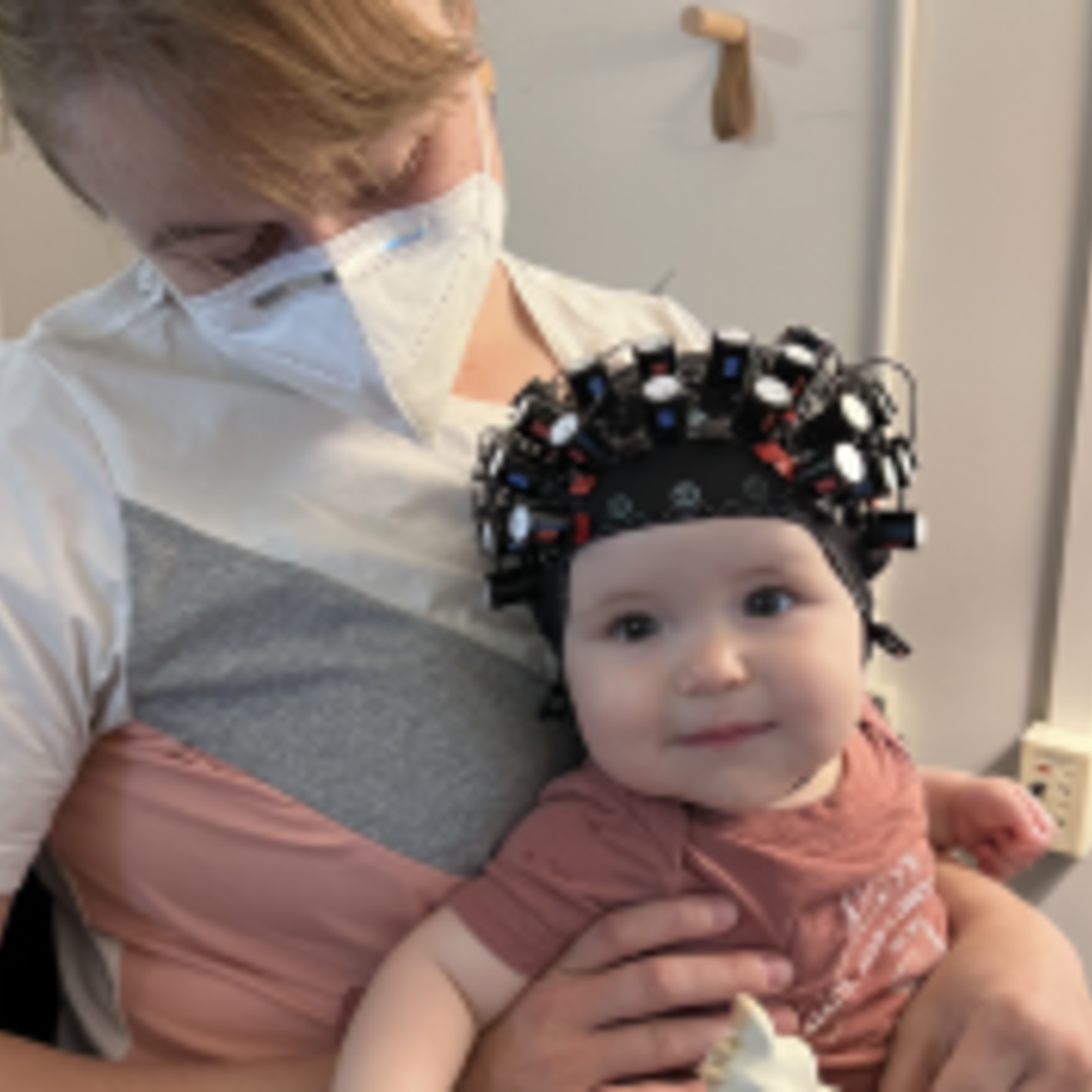
fNIRS caps are adaptable and comfortable for all ages!
What is fNIRS?
Functional near-infrared spectroscopy (fNIRS, for short) is a brain imaging technique that lets us measure brain activity. It measures blood flow changes in the brain (the “hemodynamic response”) using infrared light, and then it uses that data to reflect brain activity and physiology. We use a cap, similar to a swim cap, with special holes to hold optodes. Our fNIRS system, located at the DEN Lab in Spence Labs, has several optodes. Some of them shine the infrared light into the scalp, and others detect how much light travels through. We like our fNIRS system because it is highly adaptable for all shapes and sizes!
What will happen during fNIRS sessions?
When you first come to the DEN Lab, our team will take some time to introduce the study to you, show you around, and make sure you are comfortable participating! Our trained research assistants will then explain each brief cognitive task that we will ask you to complete. Our research assistants will ensure you are comfortable while we put the fNIRS cap on. We will do some practice to familiarize you and, at later time points, your child with the cognitive tasks. Once you and, at later time points, your child is ready to go, we will measure their brain activity using fNIRS as you complete the cognitive tasks! The fNIRS session takes approximately 30 to complete.
Why do we request your help?
Our research focuses on developments in the brain. With the help of you, your child, and many other participants, we can learn more about how children’s brains grow and learn. Our goal is to understand the brain mechanisms behind cognitive development, and how these relate to mood and anxiety symptoms during and after pregnancy. This helps scientists, educators, doctors, and many other people to better understand how maternal health influences the developing brain in children. Our ultimate goal is that research like ours will make a positive difference in the lives of mothers and children across the globe.